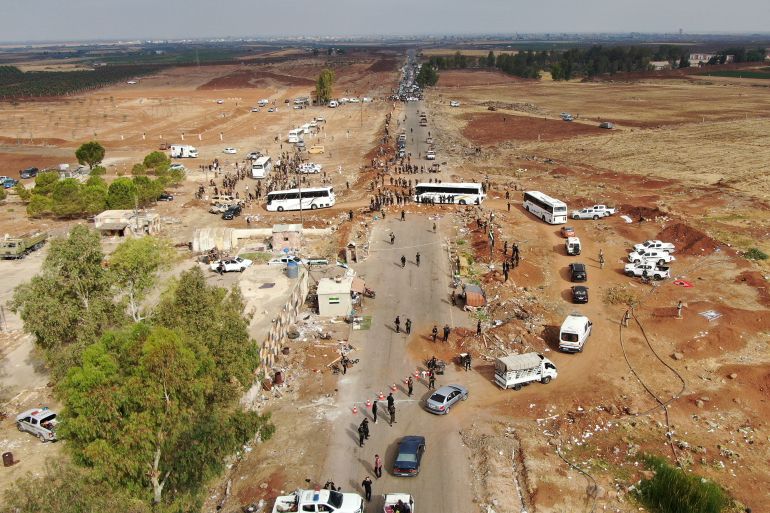On Monday, the first Bedouin families drove on buses and trucks to meet Syrian Arab Red Crescent vehicles and ambulances. As the government intends to evacuate 1,500 people, they were transported to nearby Daraa.
According to Al Jazeera’s Mohamed Vall, who was reporting from Damascus’ capital, about noon (9:00 GMT), “At least 500 people have already left on 10 buses this morning, and more are expected to leave Suwayda in the next few hours.”
Nearly 260 people were killed and threatened to end Syria’s post-war transition as a result of the clashes between the Druze minority and the Bedouin clans, which started on July 13. According to the UN International Organization for Migration, 128, 571 people were also displaced by the violence.
Israel intervened by bombing Syria’s Ministry of Defense structures in Damascus, and Israel launched airstrikes against them. Syrian government forces in Suwayda province were also attacked by Israeli forces, who claimed they were protecting the Druze, who Israel refers to as its “brothers.”
Vall claimed that some Bedouin families were willing to flee the area.
“Seven districts of Suwayda are largely or partially inhabited by Arab Bedouins, and some of them are willing to leave on their own,” he said.
As efforts to achieve a total ceasefire are in progress, Syrian Interior Minister Ahmad al-Dalati told the SANA news agency that the evacuation process will also allow displaced civilians from Suwayda to return.
According to al-Dalati, “We have imposed a security cordon in the Suwayda area to keep it secure and to put an end to the fighting there.” This will maintain the course that will lead to province stability and reconciliation.
The Bedouin fighters will release the captive Druze women, according to the Syrian Observatory for Human Rights, which is based in the United Kingdom.
After negotiations for a captives swap ended late on Sunday, the Suwayda Observatory and activist groups reported hearing what they claimed were Israeli helicopters and air strikes over villages where some conflicted between the Bedouins and the Druze.
The Israeli military claimed to be unaware of any overnight strikes in Syria.
UN Office for the Coordination of Humanitarian Affairs reported that a first Syrian Arab Red Crescent convoy on Sunday entered Suwayda with UN humanitarian aid, including food, water, medical supplies, and fuel.
Ahmed al-Sharaa, the interim leader of Syria, has criticized the Druze community’s loyalists, accusing them of being connected to spiritual leader Sheikh Hikmat al-Hijri, who has been a part of the conflict. He vowed to hold accountable those responsible for committing targeted attacks and other crimes.
The al-Assad family, which ruled Syria for 53 years, was largely celebrated by the Druze minority when it was overthrown in December.
Source: Aljazeera

Leave a Reply